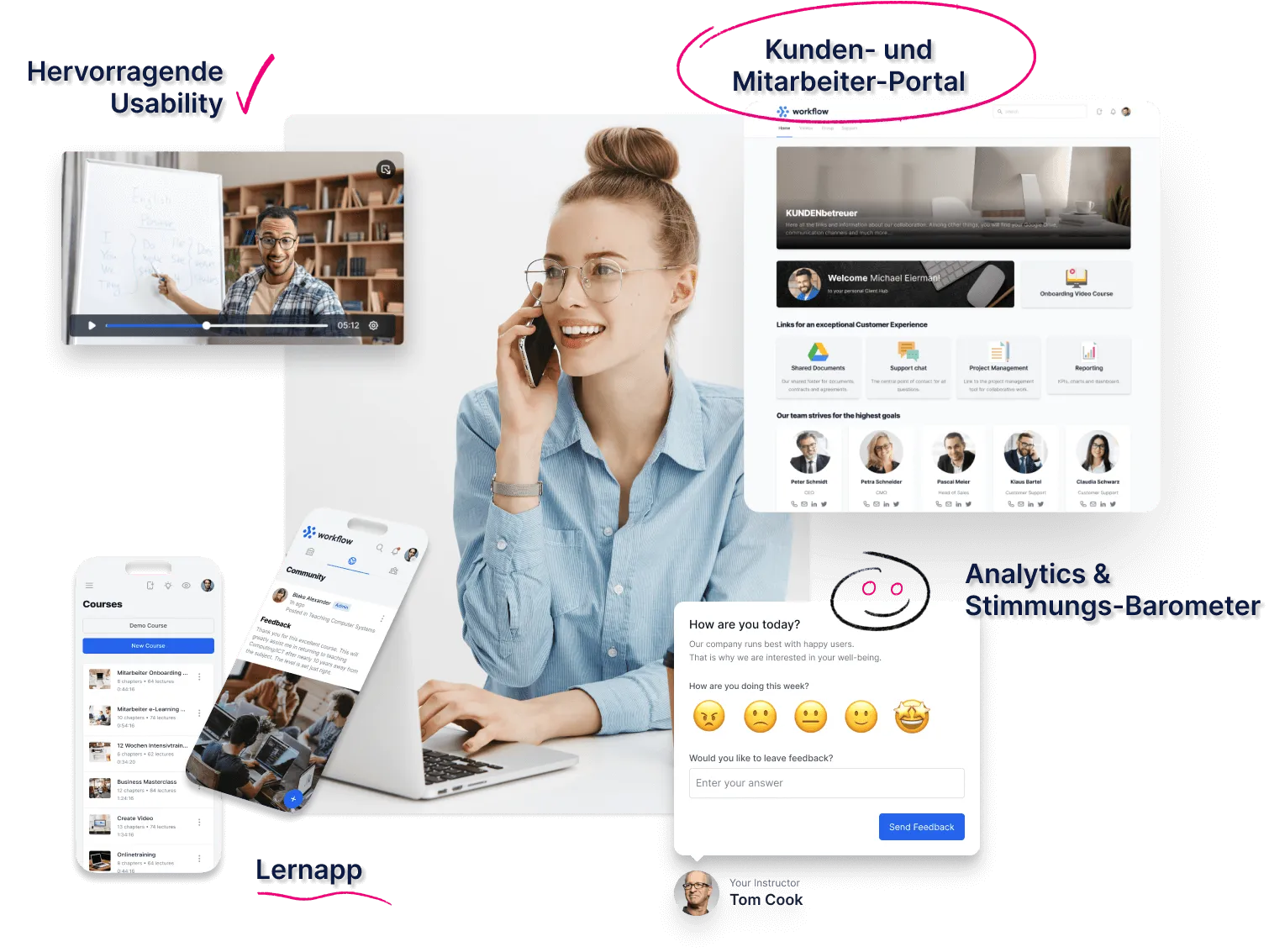
.svg)


How digital onboarding determines the success of your employee
Knowledge can be retained and imparted in a scalable manner, regardless of the industry, budget size or number of learners. Digitization with fast ROI.








%20(1).webp)
We are constantly developing new functions together with our customers to provide you with the best possible tools for your success

























Set up direct integrations to common tools for secure workflows without IT knowledge. Automate processes individually and according to your needs.

Company: Simple data transfer thanks to REST API and SSO.
Memberspot is your secure and proven SaaS solution for business needs
Relocation service from your current provider to Memberspot
Self-explanatory platform with great customer support
Video tutorials and help articles on using our e-learning platform
Test free of charge
An LMS platform, i.e. a learning management system, is there to provide learning materials and manage learning processes. In e-learning, it is important to pick up users and give them a good learning experience.
A learning platform, such as Moodle, Udemy, Memberspot, 360Learning or Eloomi, offers the opportunity to stay in contact with learners and provide them with videos and other materials.
LMS platforms differ primarily in terms of their functions and usability, allowing teachers and instructors to upload materials and monitor their students' learning progress.
Many companies use individual solutions, but in our experience, the existing solutions on the market are often sufficient. It is important that you feel comfortable with the solution and have a contact person.
Learning management systems are now used in many companies. Around 50% of small companies with up to 1,000 employees use an LMS, while the proportion is much higher in larger companies.
However, the question here is always in how many areas and how intensively the LMS is used, thus simplifying knowledge management. The costs vary - if companies opt for individual solutions, the acquisition can cost an average of €100,000, whereas if existing systems such as Memberspot are used, the costs are immensely lower.
The cost of an LMS depends on the demands placed on it. Individual solutions cost around €30,000 per year, while solutions such as Udemy, 360Learning or Memberspot cost between €50 and €500 per month.
Memberspot offers prices on request, which are around €200 to €400 for companies. Find out more about Memberspot's rates.
E-learning and LMS are resource-saving: it saves resources for teachers, for travel and for employee absences. Instead of sending employees from different locations to another location and thus having to put up with work absences, an LMS allows employees to use the training opportunities flexibly and at the times when they are most concentrated.
In addition, teachers do not have to tell the same story to different employees for each learning session, but instead record their knowledge once in a video, which is then made available to all employees.
An LMS platform enables companies to collect and centrally store the accumulated knowledge of specialist departments. The knowledge is secured, stored in a common source and can be accessed at any time.
There are many possible applications for learning management systems. Onboarding, further development, training - all of this often takes place in 1:1 lessons or via the floor.
A learning management system can also ensure knowledge management within the company, processes (such as onboarding) are automated and employees know where they can access knowledge and look things up.
This saves money, reduces frustration and ensures pleasant processes.
Of course, setting up an LMS always depends on the wishes of the employees, management, learners and teachers. There are many solutions on the market, both individual ones (which involve a lot of work and effort) and existing ones, such as Memberspot, which can be set up in a few simple steps.
Creating different teachers ensures that the further work is then divided between different people who can now concentrate on their area of expertise and therefore their teaching area.
E-learning has many areas of application in companies. Onboarding for new employees can be simplified and implemented in a resource-saving manner, company training in specialist areas but also management positions is possible, as is the dissemination of important innovations, e.g. in systems.
E-learning is used in companies as well as in schools, universities and public administration.
